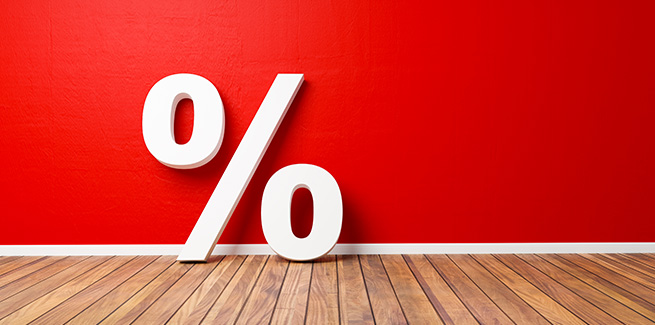The June 2021 ANZ-Property Council survey has revealed that 30 per cent of respondents from the property industry are expecting interest rate rises from the Reserve Bank of Australia (RBA) over the next 12 months.
This is up from 15 per cent in the March survey.
However, ANZ senior economist Felicity Emmett said that it seems unlikely that the RBA would increase the cash rate over the coming year, given that wages growth and inflation have continued to remain low and below the RBA’s targets.
The RBA is due to deliver its cash rate decision and minutes of the July 2021 monetary policy board meeting today (5 July 2021).
However, Ms Emmett noted that fixed mortgage rates have already been rising and would continue to increase over the next few months.
The survey findings have been released at the same time as a broker survey by mortgage broker platform HashChing, which found that over half (55 per cent) of all broker respondents felt that an interest rate rise was likely in 2021.
In her analysis, Ms Emmett reiterated the major bank’s view that housing prices would rise by 15 per cent to 20 per cent across the capital cities through 2021, propelled by record-low interest rates, which have “trumped” factors like low population growth as migration has stalled due to border restrictions amid the coronavirus pandemic.
She said that this view has accounted for some slowdown amid rising fixed mortgage rates and regulators closely monitoring bank lending practices.
National house prices rose by 2.3 per cent month-on-month and were up by 11.6 per cent since December 2020, according to ANZ.
Housing sector confidence at record highs despite dip
The ANZ-Property Council survey of over 870 respondents – including owners, developers, agents, managers, consultants and government across all major industry sectors and regions – also found that sentiment in the property sector edged lower in June, driven by a drop in the residential sector (after hitting a record high in the March quarter).
However, confidence in the housing sector is still at its highest level on record, according to the survey. Confidence in the residential sector has remained elevated on all measures including prices, construction activity, staffing levels and forward work schedules.
A net balance of 78 per cent of firms operating in the residential sector now expect price gains over the next year, while 52 per cent expect construction to expand over the coming year, the survey found.
The construction outlook has trended lower but has remained very positive. Nationally, a net balance of 52 per cent of firms in the residential sector expect an expansion in activity, down from 61 per cent in March.
“The combination of record-low mortgage interest rates and targeted stimulus has clearly supported the housing sector,” Ms Emmett said.
“The HomeBuilder scheme has brought forward a large chunk of demand, and with enquiry levels dropping and building approvals turning over, a modest tick lower in confidence is not surprising.
“The challenge ahead will be for the apartment sector to pick up given the ongoing lack of immigration.”
Lockdown drags office property confidence
Overall confidence in commercial property rose in the June survey, driven by a confidence boost in the tourism and retail sectors.
Confidence in the industrial, tourism and retail sectors is now above pre-pandemic levels, but office property sentiment declined making gains in the previous survey.
According to Ms Emmett, confidence in the office sector is being shaken by ongoing lockdowns and concerns about long-term demand, given a permanent transition to higher rates of working from home.
While office property confidence fell in the latest survey, performance across indicators were mixed. The forward orders and staffing levels measures fell, while the outlook for prices and construction improved.
“The decline in office property sentiment looks to be driven by changing sentiment about the impact of COVID,” Ms Emmett said.
“The proportion of respondents who see office property as the sector most affected by the pandemic rose in the June survey. In contrast, the proportion of respondents expecting the impact to be greatest on the tourism sector declined.”
Of the commercial property sectors, expectations are the strongest in industrial property by a “wide margin” despite confidence coming off its high and the small decline in confidence in the latest survey.
Sentiment trended lower across all indicators, except forward orders, which rose to a record high.
A net balance of 68 per cent of respondents in the industrial sector are expecting higher prices, while 73 per cent are expecting construction activity to expand.
While the survey pre-dates the current lockdown in Sydney and the introduction of snap lockdowns and restrictions across different parts of Australia, Ms Emmett said that lockdowns would not have a material or sustained negative impact on confidence as long as they are short-lived.
[Related: ANZ becomes third-largest mortgage lender]
 ;
;
